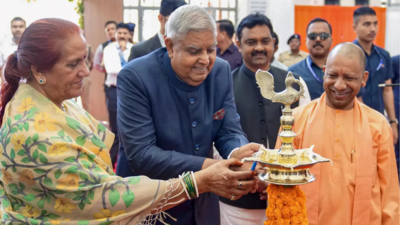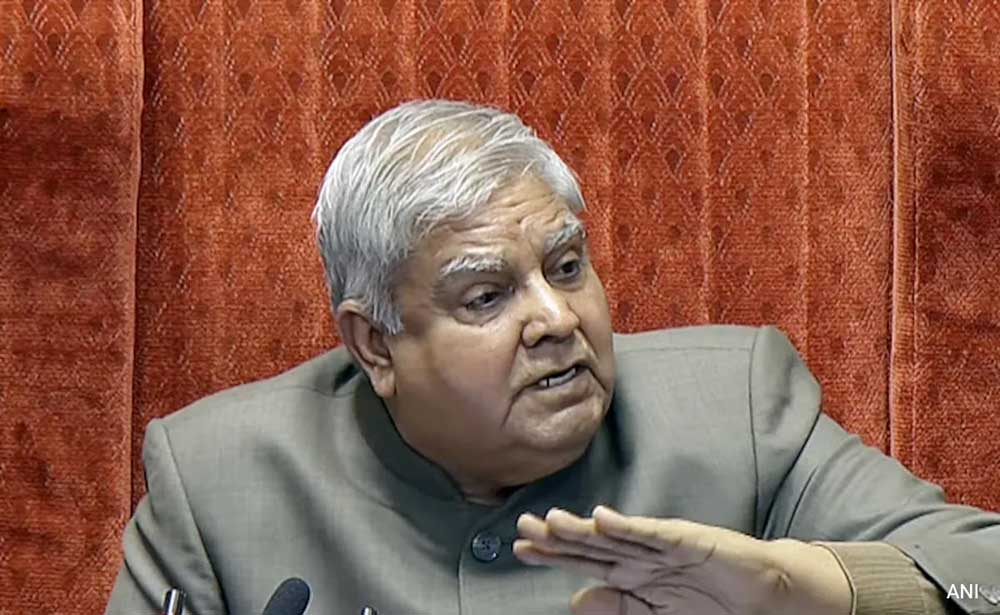New Delhi, September 7, 2024 – In a recent address, Vice President Jagdeep Dhankhar launched a scathing attack on those who consider Article 370, which granted special status to Jammu and Kashmir, as a permanent fixture in the Indian Constitution. His remarks have reignited the debate over the abrogation of Article 370, a move that has been both celebrated and criticized since its implementation in August 2019.
The Controversial Statement
Speaking at the inauguration of Sainik School in Gorakhpur, Uttar Pradesh, Vice President Dhankhar emphasized the importance of nationalism and the need to prioritize national duty over self-interest. He described the belief in the permanence of Article 370 as “the ultimate betrayal of the nation”. Dhankhar’s comments come at a time when the political landscape in Jammu and Kashmir is heating up ahead of the upcoming assembly elections.
“Article 370, which the framers of the Constitution called temporary, was considered permanent by some. In this decade, it has been abolished. This is today’s India,” Dhankhar stated. He urged citizens to maintain ideological tenacity and propagate national sentiment, warning that compromising on nationalism would amount to an attack on India’s civilizational ethos.
Historical Context
Article 370 was introduced as a temporary provision in the Indian Constitution, granting special autonomy to the state of Jammu and Kashmir. It allowed the state to have its own constitution, a separate flag, and autonomy over internal matters except defense, communications, and foreign affairs. However, on August 5, 2019, the Indian government, led by Prime Minister Narendra Modi, abrogated Article 370, integrating Jammu and Kashmir more closely with the rest of India.

The abrogation has been a polarizing issue. Supporters argue that it has brought peace, stability, and development to the region, while critics claim it has led to increased militarization and human rights violations.
Political Reactions
Dhankhar’s remarks have drawn sharp reactions from various political parties. The Bharatiya Janata Party (BJP) has consistently maintained that the abrogation of Article 370 was a historic move that ended the spirit of separatism in Jammu and Kashmir. Union Home Minister Amit Shah, while releasing the BJP’s manifesto, reiterated that Article 370 is now a “thing of the past” and will never be reinstated.
On the other hand, the two main regional parties in Jammu and Kashmir, the National Conference (NC) and the People’s Democratic Party (PDP), have made the restoration of Article 370 a central theme in their poll manifestos. The Congress party, which has allied with the NC, has focused on the demand for restoring full statehood to Jammu and Kashmir, avoiding a direct stance on Article 370.
The Impact on Jammu and Kashmir
Since the abrogation of Article 370, the Indian government has claimed significant progress in terms of development and security in Jammu and Kashmir. Vice President Dhankhar highlighted the positive changes in the region, citing increased tourism, investment, and public order. He pointed out that the recent G20 meeting in Kashmir was a testament to the region’s improved stability and global recognition.
“The representatives of G20 took with them golden moments of their visit to Kashmir. Tourism is increasing here. People are happy. People want to invest here. This is a big change here because peace, stability, and public order are here,” Dhankhar said.
Criticism and Concerns
Despite the government’s claims, the abrogation of Article 370 has faced criticism from various quarters. Human rights organizations have reported increased instances of arbitrary detentions, communication blackouts, and restrictions on freedom of expression in the region. Critics argue that the move has alienated the local population and exacerbated tensions between the state and the central government.
“The abrogation of Article 370 has not only undermined the autonomy of Jammu and Kashmir but also led to a severe crackdown on civil liberties. The government’s narrative of development and stability is overshadowed by the ground realities of repression and unrest,” said a spokesperson for a human rights organization.
The Road Ahead
As Jammu and Kashmir prepares for its assembly elections, the debate over Article 370 is expected to dominate the political discourse. The BJP is likely to highlight the abrogation as a key achievement, while the NC and PDP will continue to advocate for its restoration. The Congress party’s stance on full statehood may also play a crucial role in shaping the electoral outcomes.
Vice President Dhankhar’s remarks have added fuel to the fire, emphasizing the ideological divide between those who support the abrogation and those who oppose it. His call for unwavering nationalism and the prioritization of national duty over self-interest reflects the BJP’s broader narrative of a unified and strong India.
For More News Updates Follow Us on Read Now News
